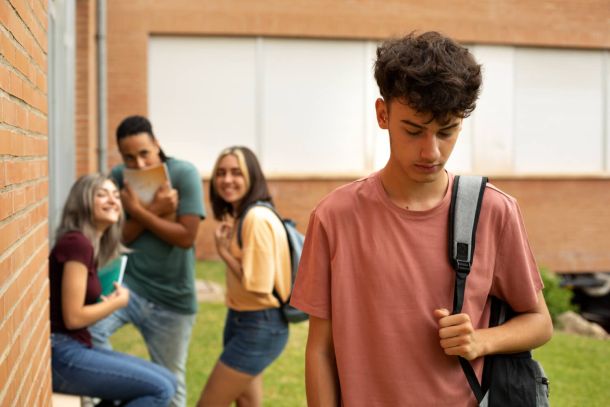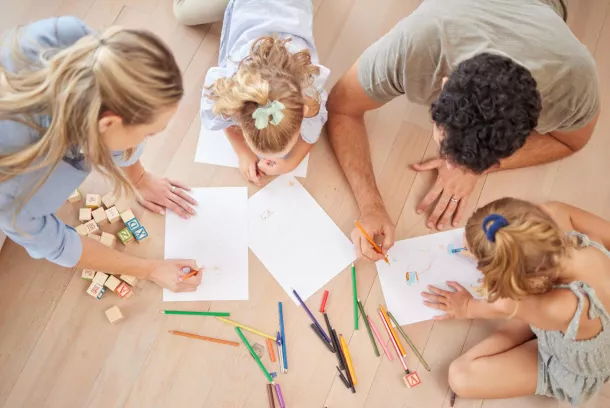
6 pillars of successful school-family partnership
6 pillars of effective family engagement in children's education
The first way parents can support their children's education is by providing a healthy family environment. As an educator, when appropriate, you can help parents by offering parenting workshops, helping families find government assistance programs and support programs neededm and encouraging them to model pro-education behavior, such as reading to their children and supporting them in completing homework.
Keeping parents informed and facilitating their openness to communicate and ask questions is vital to their active engagement. It would be a good idea to organise parent-teacher meetings, to send home pupils' work with explanations of their grades, to send regular messages describing the work you are doing in class. Families need to see openness and availability from teachers and school managers.
One of the direct ways parents can get involved in their children's education is to volunteer in the classroom and/or school. You could invite parents to help out in the classroom and make sure they are aware of volunteer opportunities within the school, such as helping with office work, being part of organising teams for various school events etc.
Parents and other family members can be excellent educational resources for students. To help parents ensure learning at home, it would be good to keep them informed of the homework and projects that children have to complete. You can also provide them with resources designed to help them understand the material you are teaching. In addition, creating voluntary reading lists and other activities together can help parents ensure that their young ones have ways to learn even outside of school.
Schools work as a partnership between parents and teachers. It would be great to encourage parents to join open meetings and participate in local advocacy and support groups focused on education. It would also be effective to make sure parents are aware of local school board elections.
Parents who are interested in community activities will usually also get involved in activities in the school context. To help them connect, you can provide information about events at local museums and parks; develop community service projects that bring parents, teachers, and administrators together; and invite community leaders to speak in the classroom and at parent events.
- Tell your children about the school, its benefits and all the wonderful things that happen here. Also, find a good time to tell them about their teachers and their qualities.
- Parent-teacher meetings are a bridge between home and school. At these meetings parents can share information about their children and their goals, learn about their progress. They can also identify and build educational strategies together.
- Support your child in doing homework or different projects. If you don't have enough experience, and the homework is challenging, look for answers and solutions together. This will motivate your child to treat tasks with more interest and seriousness. When assessing children, focus on the development of skills , not just test scores.
-
Be present at your child's school activities, be it concerts, sporting events or festivals. Even if parents' attendance at these events does not seem to be closely linked to school performance, it shows children that their parents are interested in their activities and passions.
-
Explain to your child the rules of the school and class and show that you really believe in them and would like them to believe in and follow them.
What can teachers do?
- Encourage parents to talk to their children about what happened at school that day. You can even pass on some thought-provoking ideas.
- Give an assignment that asks children to ask questions of family members. For example, you can use the family tree or simple homework ideas that can draw on the experiences of siblings, parents or even grandparents.
- Give examples of activities that parents and children can do at home: watching movies or cartoons together, playing video games, doing activities in nature or simply reading a favourite book.
- You can invite parents to come and observe some of the class activities and then discuss what happened.
- Some parents may not be experienced in managing educational activities at home, so it's a good opportunity to discuss the following topics with them: how to create a supportive learning environment at home, ways to monitor school progress, how to encourage your child to develop healthy habits at home.
- Promote open communication with each family. Communication between teachers and parents can help establish trust and build relationships. Start by holding parent-teacher conferences at the beginning of the school year. Parents and teachers can share a little about themselves and their children, and this will set the tone for open communication throughout the year. Open communication will encourage parents to share their strengths and weaknesses, and not least, they will inform the teacher about certain events happening in the family that might affect the child's behaviour in class.
- Recognise different parenting styles and family boundaries. Educators often perceive the family that comes to meetings and responds with involvement, active participation, helps with learning or discipline problems, provides materials for a project, as more caring or "good family." Families who respond politely to requests, but leave decisions and school work to the child and teacher, are seen as less caring and uninvolved. These are just stereotypes. Build relationships with parents based on family strengths and avoid labeling and allowing personal biases to influence your interactions with families.
- Avoid stereotypes. Just because a student is of a certain culture or religion does not mean that his or her family should be placed in a certain category, a certain socioeconomic status (Kagan & Garcia 1991). It is essential that teachers become familiar with the cultural background of each individual student.
- Balance school activities with other activities that incorporate and encourage both individual and group learning. Children need opportunities to experience who they are as individuals and as part of a group.
- Respect families' need for control. When introducing new ideas, materials or experiences for children, involve families. Recognise also that some family members may not have had positive experiences with education while growing up. Although they may show anger, hostility or mistrust, the source may be in past events. It will take time and perseverance to build a relationship with these families. Teachers often demonstrate that families can rely on them and trust them to help them educate their children.
It is obvious that the methods of engaging families in children's education, school activities and events depend on the culture of the organisation, the culture of the locality where people are part of. Managers and teachers could put this issue on the priority list each year, identifying the best strategies for their own community. Children's performance is also based on this school-family partnership, the pillar of their motivation to learn.
How Kinderpedia supports family engagement in children's education
On Kinderpedia, parents find out in real-time how their children’s day at school or nursery went: from attendance, grades, and assignments, to mood, participation, or how much they ate and slept, in the case of younger students. When they are aware of their children’s projects and progress at school, parents can continue the educational process at home and support their children where they need it. Kinderpedia creates the environment for an effective partnership between school and family and places student-teacher-parent collaboration right at the heart of learning.

Kinderpedia
The complete communication and management solution for schools and childcare centres.
Simplifies teachers' work and brings parents closer to their children's school progress.
Recommended articles
Want to improve your center quality? Kinderpedia is here to help! Not only do we provide thousands of informational content pieces like blog posts, podcasts, webinars and more, we are also makers of the #1 Rated and Reviewed Childcare Software.







